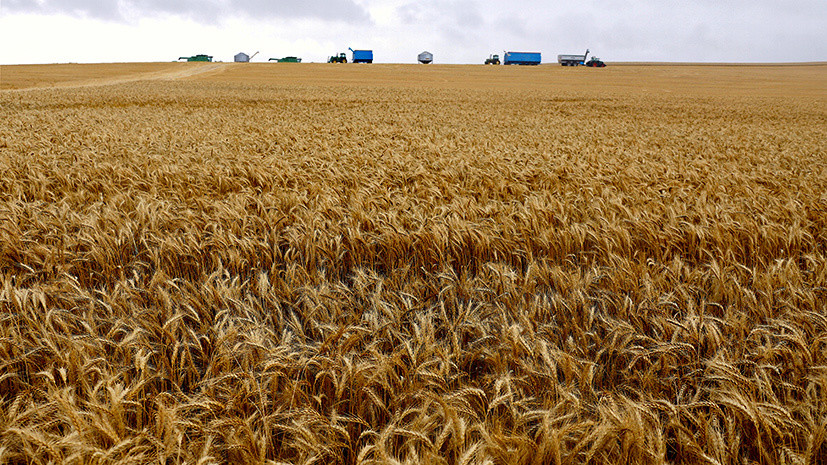Since the beginning of March, world prices for milling wheat have decreased by 9% and reached their lowest level in the last six months. According to the MATIF exchange, the lowest rate was recorded on March 9, when the cost of one ton of grain fell to € 170 per ton. The last time such a price level could be observed in September 2019.
Now quotes have recovered somewhat and are close to € 177 per ton. However, the value still remains at € 10-15 below the levels of the end of February.
According to RT analysts surveyed, a sharp reduction in the price of wheat on the world market occurred simultaneously with a massive collapse in oil prices.
“A certain impact on the grain market was precisely due to a decrease in the cost of oil. The reason for this is the interconnectedness of product markets. The decline in oil prices has led to a general weakening of demand in many other commodity sectors. Grain sales declined, leading to cheaper products, ”said Arkady Zlochevsky, president of the Russian Grain Union, to RT.
Recall that on Monday, March 9, the price of oil at international sites fell by more than a third and at the moment reached $ 31 per barrel. The collapse of quotations became the largest since 1991.
The reason for the shocking market situation was the unexpected collapse of the OPEC + alliance. On March 6, the parties to the transaction were unable to agree on an additional reduction in oil production and decided to completely abandon all previous obligations.
According to experts, the collapse of oil prices exacerbated the fall in wheat prices, which has been outlined since the end of January. At that time, the cost of one ton of grain reached € 199. Cheaper prices in recent months, analysts explain the influence of coronavirus. According to them, the global spread of infection provoked a collapse in demand for food raw materials.
As noted by Arkady Zlochevsky, against the backdrop of falling wheat consumption in the world, stocks of grain crops continue to grow. The current surplus in the market risks leading to an even greater drop in prices.
“The main element of market pricing is precisely the ratio of grain reserves to consumption. It follows from this that in the near future wheat will definitely not rise in price, ”the expert added.
According to the forecast of the FAO (UN Food and Agriculture Organization), in the season season 2019/20 (ending June 30), world wheat production may reach 763 million tons, and the total supply of goods on the global market - 1.038 billion tons. At the same time, consumption will reach only 761.5 million tons.
Note that at the moment, Russia remains the largest wheat exporter in the world. According to RT director of the National Union of Grain Producers Mikhail Privezentsev, almost a third of the grain grown by the country is supplied annually. It is expected that in 2020 the volume of export deliveries will amount to 36 million tons.
At the same time, the projected decline in world wheat prices will not affect the work of Russian exporters. This point of view in an interview with RT was expressed by Anna Bodrova, senior analyst at IAC Alpari. According to her, a possible decrease in income due to cheaper grain can be compensated for by weakening the ruble.
“Even if the prices for milling wheat now fall even more, Russian producers will earn due to the exchange rate difference, because the ruble has fallen in relation to the dollar and the euro,” said Bodrova.
At the same time, the global depreciation of wheat and the high volume of grain stocks in Russia will help curb the growth of domestic prices for bakery products and other derived products. This point of view in a conversation with RT was expressed by the managing partner of Agro and Food Communications agency Ilya Bereznyuk.
“If we proceed from the current situation in the domestic grain market, we do not observe any serious prerequisites for a significant increase in prices for bread or pasta. In addition, Russia now has large reserves of grain, because last year's crop turned out to be quite successful. Price increases could be expected only if the country experienced a shortage of wheat, which we certainly do not have, ”Bereznyuk explained.

